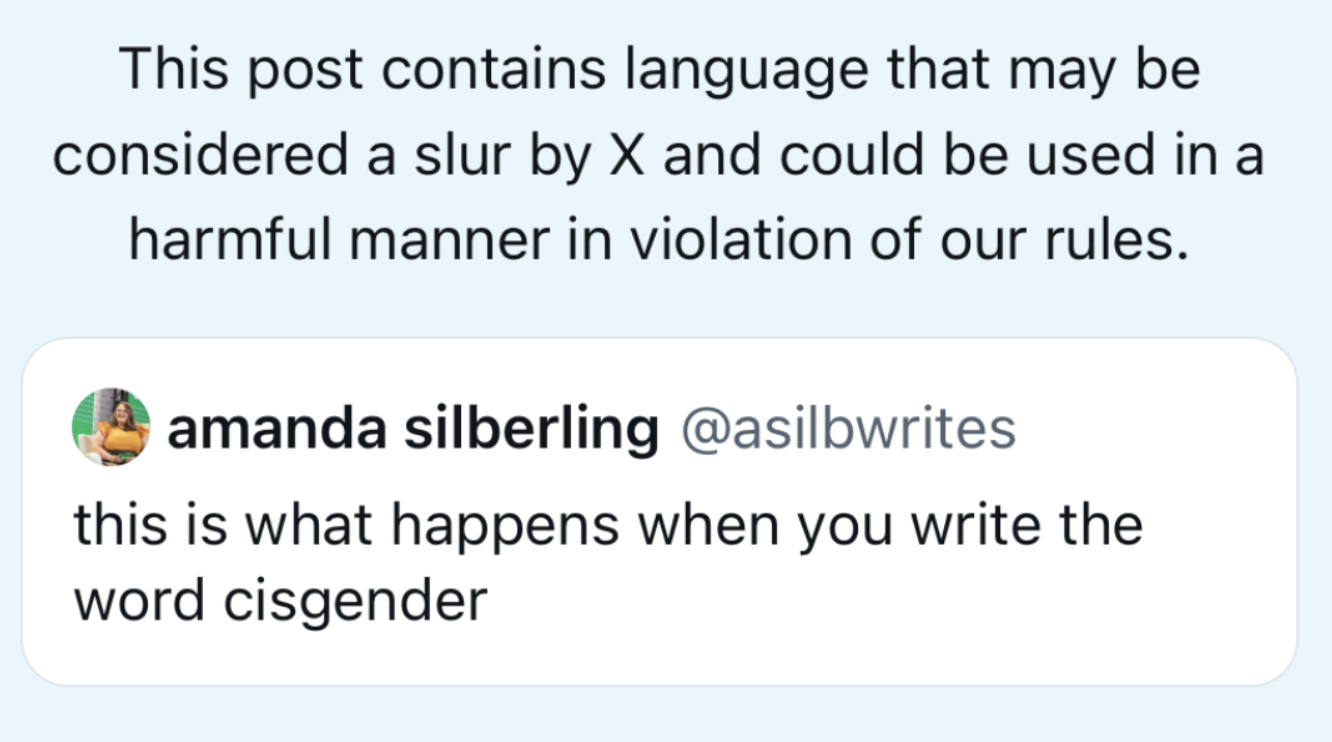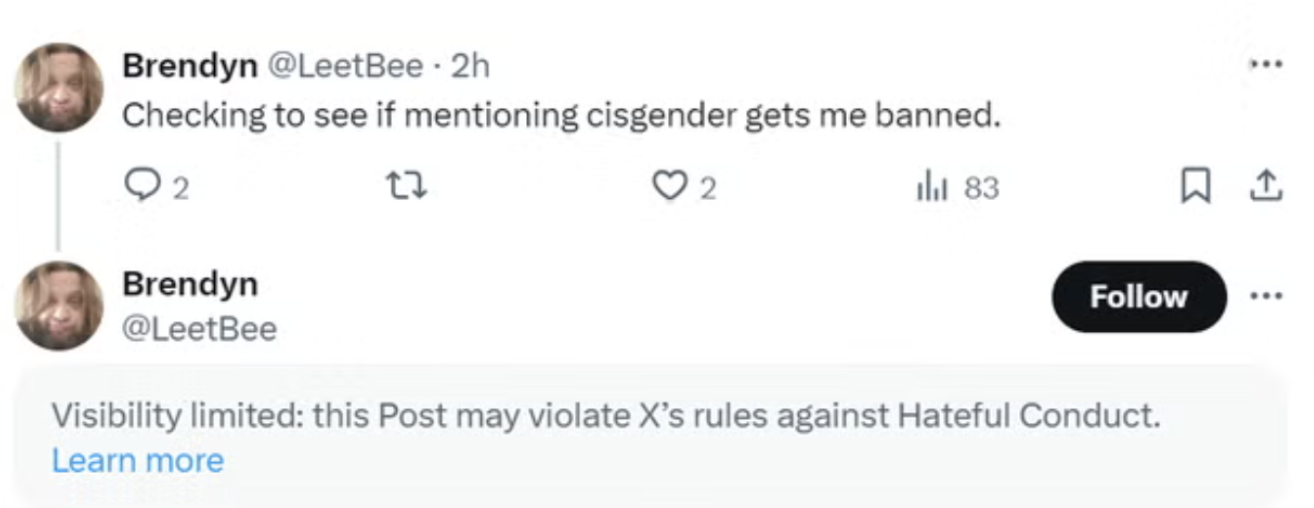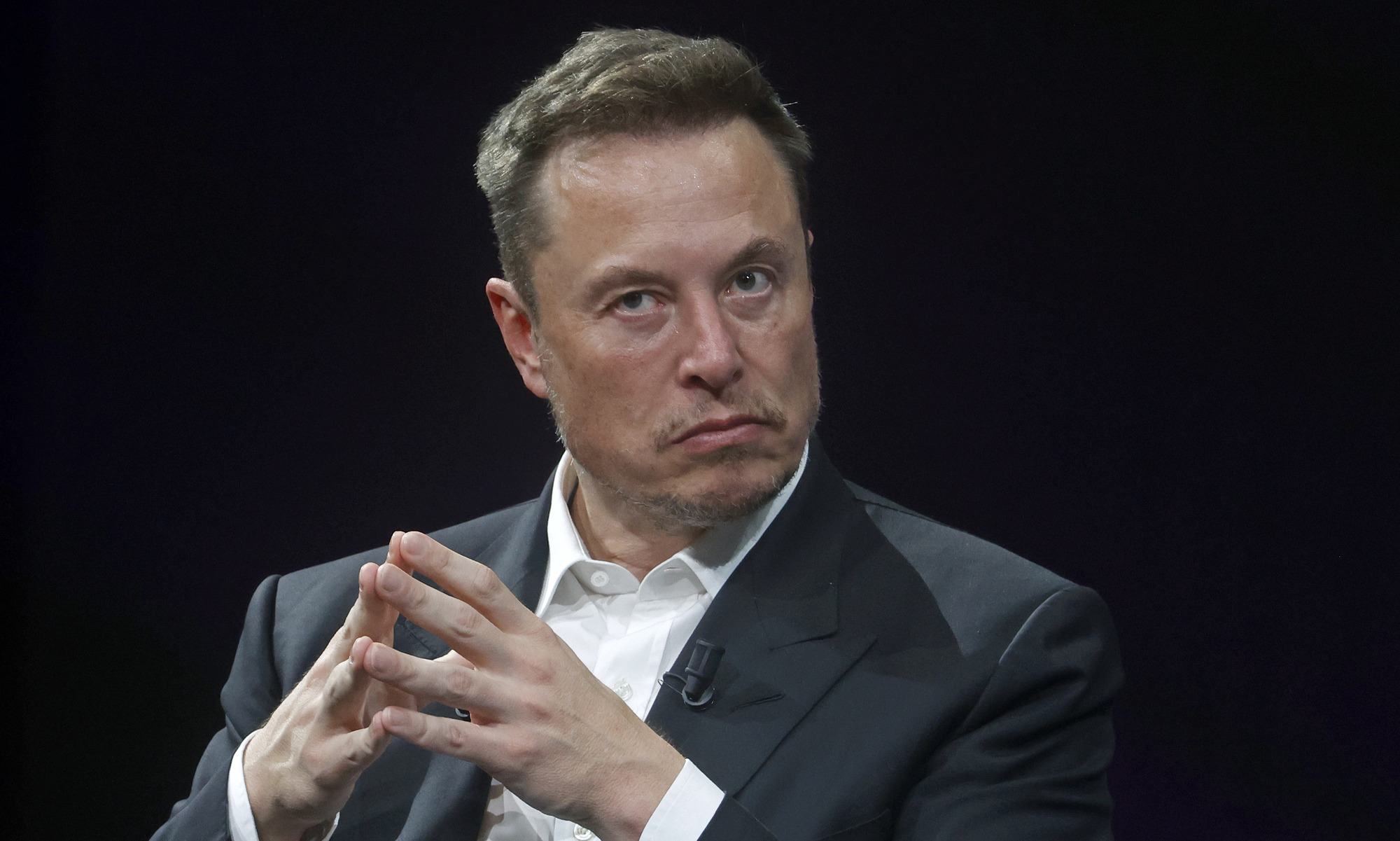When iconoclastic billionaire Elon Musk bought Twitter in 2022 he promised to restore free speech to the social media platform, whose previous regime had censored content and banned users practically indiscriminately. In the years since, Musk has faced questions about whether his policies are consistent with his bold promises — a criticism that has been reinforced by his recent treatment of the word “cisgender”.
Musk is clearly no fan of the term, which is often abbreviated to “cis” and used by social progressives to denote someone who is not transgender. He has called it a “slur” and announced some months ago that its repeated use would be treated as a violation of the harassment policies at X, as it’s now known. Now, users who post the term are reportedly seeing their posts restricted.
As TechCrunch reports, “If you write the words ‘cis’ or ‘cisgender’ on X, you might be served this full-screen message: ‘This post contains language that may be considered a slur by X and could be used in a harmful manner in violation of our rules.’ You can continue to publish the post or delete it.”

If you do go forward with posting something using the term “cisgender,” you may see the visibility of your post heavily limited.

There’s no disputing the fact that this is ideological language only really used by very-online progressives or in activist spaces. Yet whether “cis” constitutes a slur is ultimately a matter of opinion that almost misses the forest for the trees. The more crucial point is that even slurs are well within the bounds of free speech.
After all, Musk has repeatedly stated that his standard for allowing “free speech” on Twitter will simply be allowing all speech that is lawful in a given country. In the US context, the First Amendment governs citizens’ legal standards for free speech, unambiguously protecting “hate speech” including slurs.
So it seems that Musk is making a giant exception to his standards and cracking down on certain words that personally bother him. And, unfortunately, it’s not the first time since taking over Twitter that the billionaire’s actions have failed to live up to his words. He has also banned certain controversial anti-Israel slogans such as “From the River to the Sea, Palestine will be free” and “decolonization”, even though they, too, while understandably controversial, are unambiguously protected by the First Amendment.
The X owner further suspended many journalists, myself included, for sharing accurate information about a planned “Transgender Day of Vengeance”. And he intentionally throttled links to Substack to the point of near-invisibility over his frustration with the company’s business decisions.
These are just a few examples of many where Musk has talked the talk about “free speech absolutism” but not necessarily walked the walk.
It’s wonderful to have someone in charge of a major social media platform who says they believe in free speech. And, to be fair to Musk, he has made some changes that do advance that goal. Yet if the billionaire really wants to be a free speech hero, he can’t keep making exceptions for things that hurt his feelings.










Join the discussion
Join like minded readers that support our journalism by becoming a paid subscriber
To join the discussion in the comments, become a paid subscriber.
Join like minded readers that support our journalism, read unlimited articles and enjoy other subscriber-only benefits.
Subscribe